Hello and thanks for clicking on this post! If you like the content I do then get ready, because I'm organizing something HUGE that soon I will be sharing here, if you do not want to miss my project I recommend you to follow me! In a few days I will be commenting more in depth what it is about! Thanks and let's go with the post.
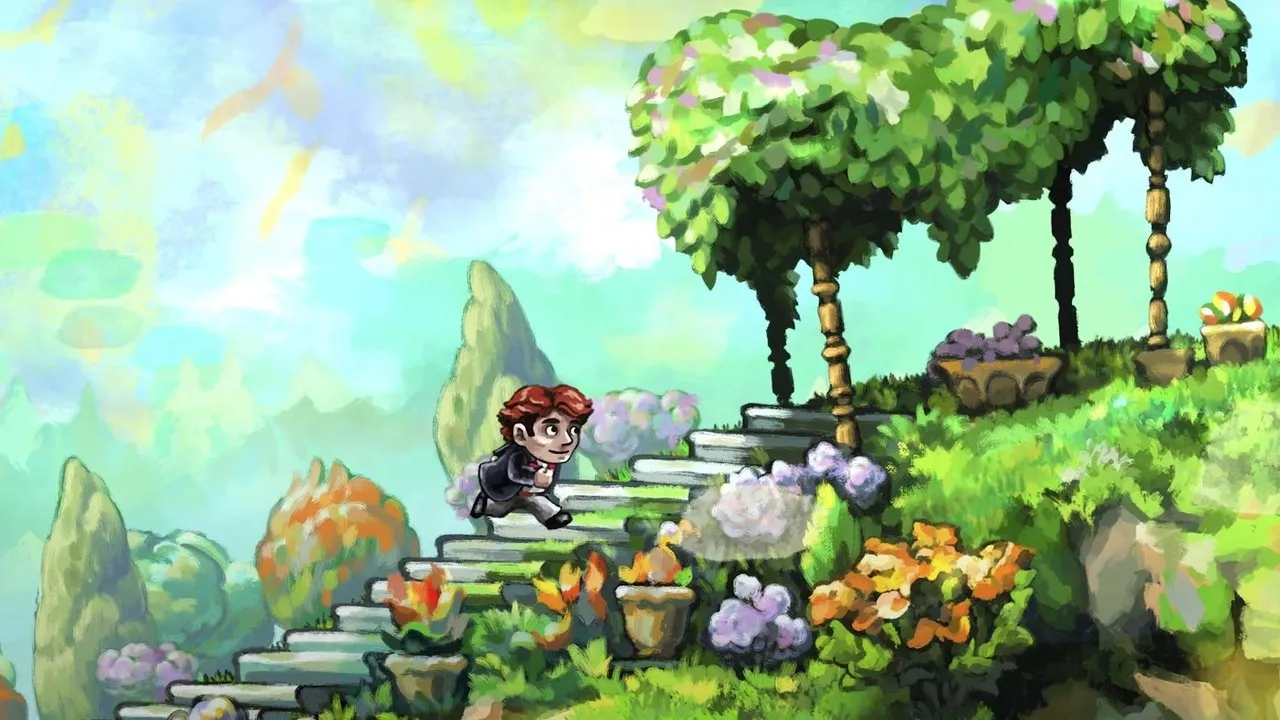
Indies, the beginning of the journey to glory: Braid
The beginning of the rise of indie games is usually a story of constant disappointment and reinvention for several years, many video games in the 80s required only a couple of developers to make a work that could be brought to market but between logistics, lack of methods to bring the smaller works and also how complicated it used to be to bring the knowledge of development in the world delayed quite a lot that independent authors were put on the map of the players, I think a fair point of comparison is when the internet started to become popular and then the option to share files through the network was exploited, many may see this as the formal beginning of the indie industry but I have a somewhat different view, I think the real rise to success all starts from the consoles and specifically with this title, Braid.
It was one of those titles that I did not pay much attention to when I had my 360 but in later years I could appreciate its genius on PC and pay attention to its background in a better way, Braid is one of the pioneering bets of a big studio like Microsoft in the Indie scene, and it is not surprising at all to bet on what was then one of the programmers and designers of experimental video games with more future: Jonathan Blow, impatient, methodical and perfectionist, Braid is the first full title that came out under the sleeve of Xbox 360 and it would take nothing to consolidate as a classic, its atypical gameplay that mixes many of the elements of platform games as generic as Mario with others strange and interesting enough for us to be hooked throughout the adventure in a game that not only looks for its playable scene but also its story, combining many elements typical of cinema and books stands out as a mature fairy tale and with plenty of room to give surprises. . But first let's talk a little more about the game.
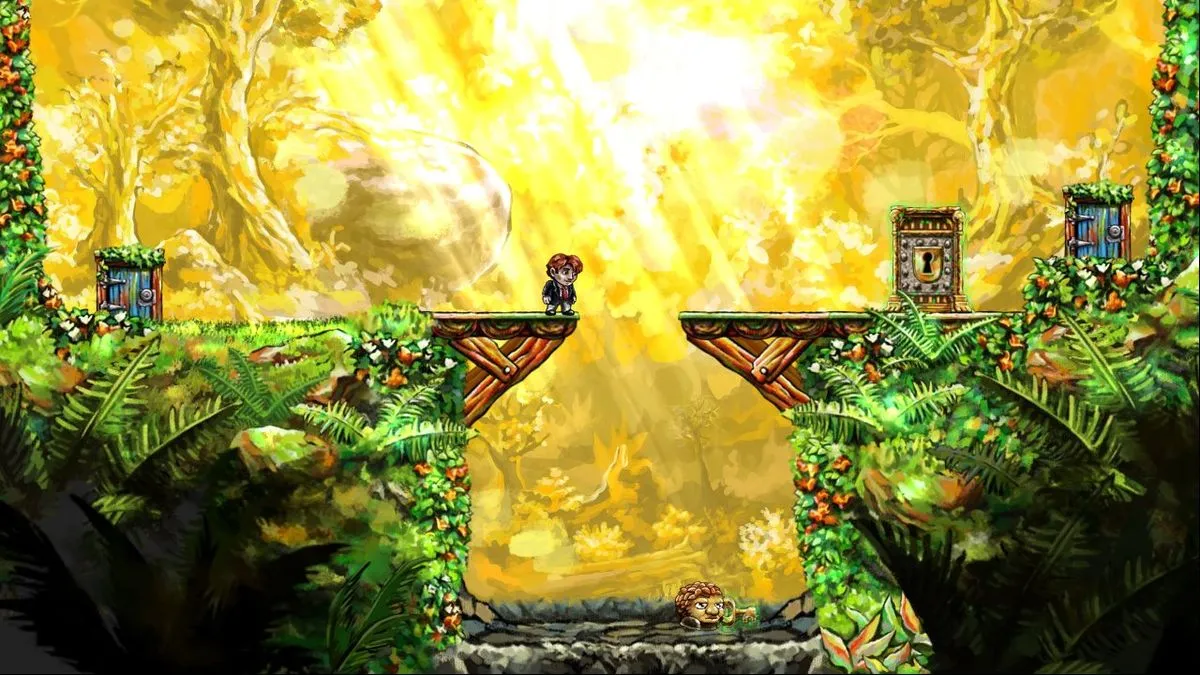
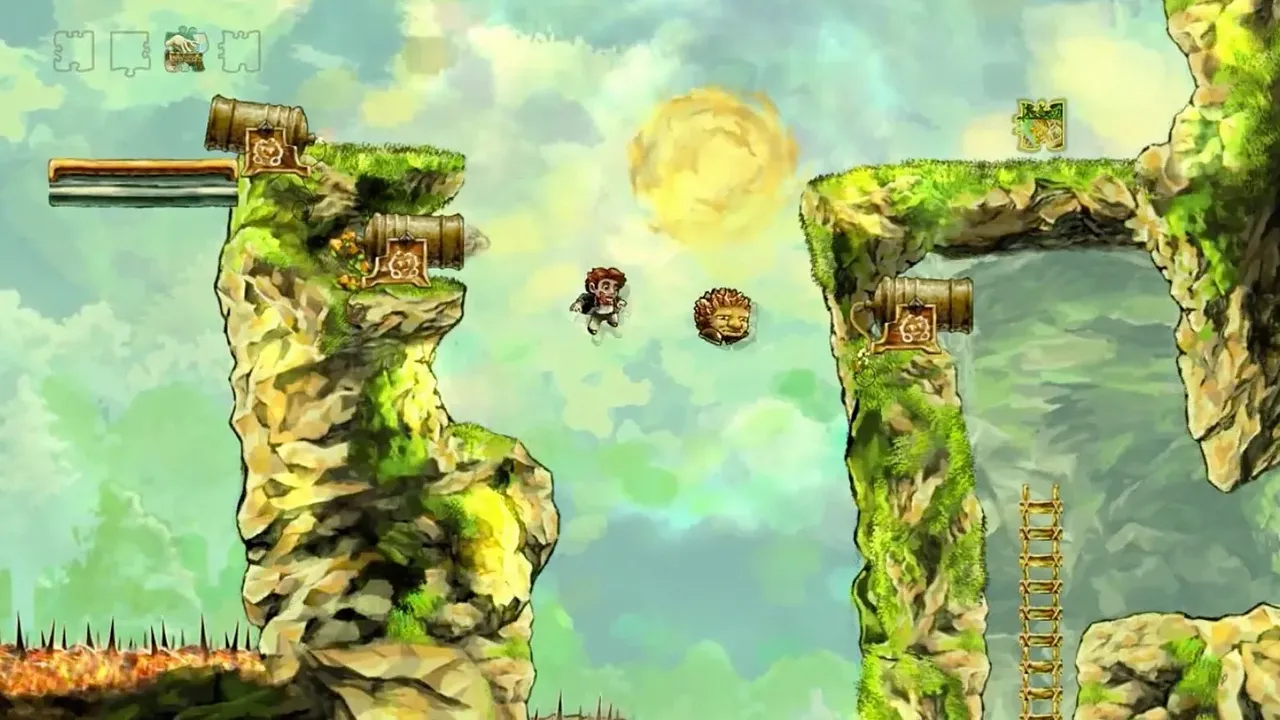
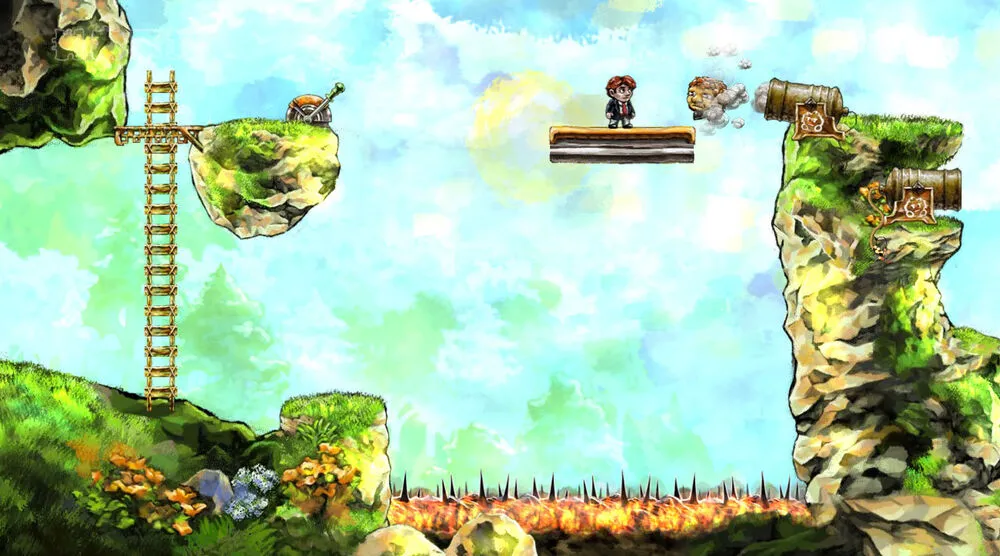
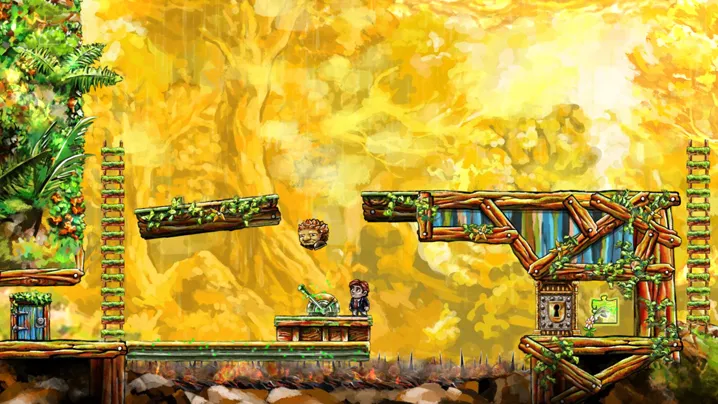
The point of Braid is so simple that it is overwhelming how complex the team at Number None Inc. We are Tim, at first it seems to us a generic hero, on a quest to save "his" princess from an evil creature, so far it seems to be the almost identical setup of one of the Mario but do not be confused, the gameplay proposal of Braid adventure us through a series of levels that if we are dedicated to go from start to finish will become insultingly easy, the really interesting thing about this game come from the puzzles that are hidden in each of the levels and that we must solve if we want to have enough keys to move to the next area, Each of these puzzles can be solved using the special technique of our protagonist, Tim, the mechanics of going back in time may be perhaps the most interesting element of the game because it plays several roles in both its gameplay and its plot, it is the mechanics that makes the game shine at its best since each piece we want to collect is preceded by a puzzle that uses this mechanics to leave us with quite ingenious and satisfying problems to solve.
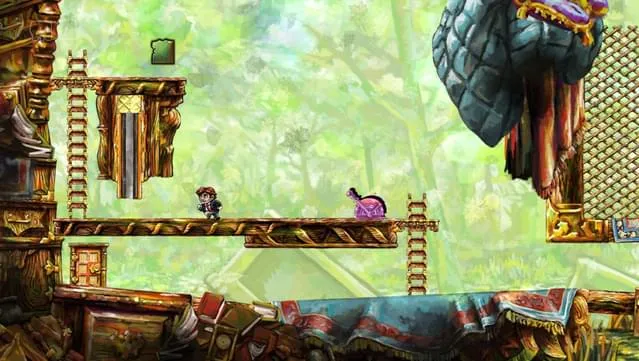
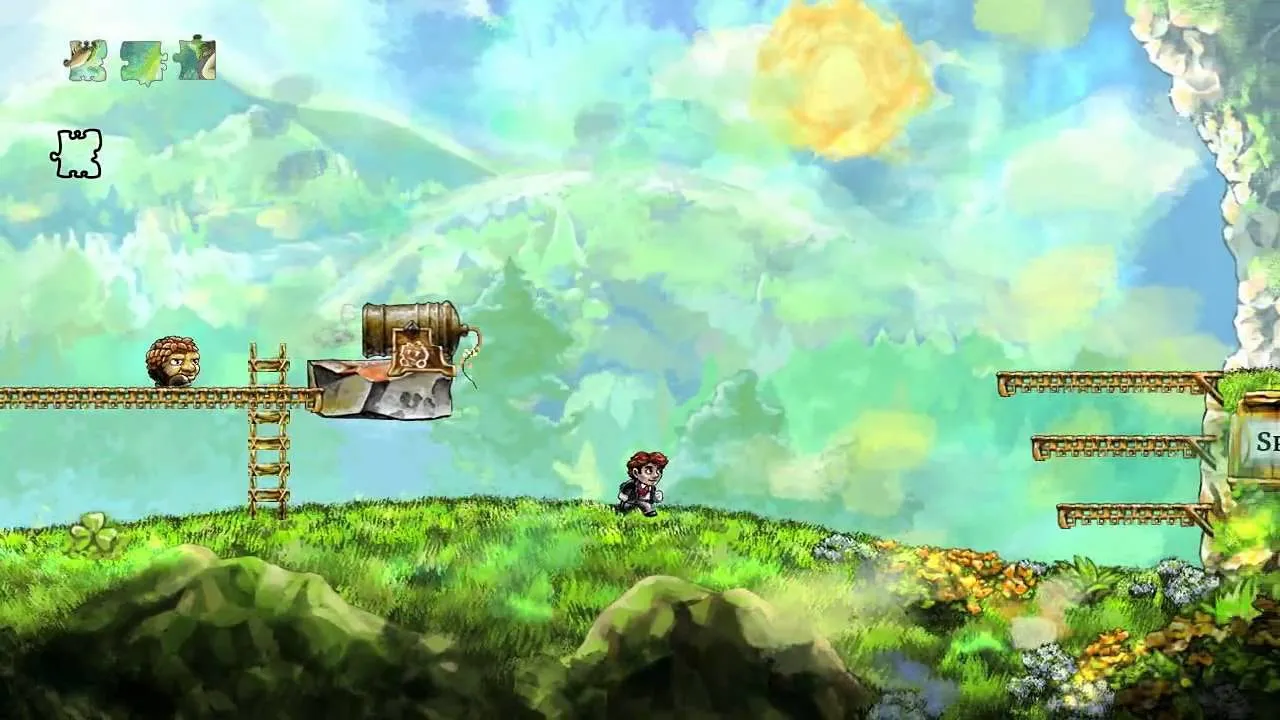
It works from the start despite its limited tools at first glance, the time mechanic is an inexhaustible source for the creative team and is used along with the objects on the stage to create very interesting and intense puzzles, in more than one I had to combine precision, In more than one I have had to combine precision, skill and the time mechanic to get through just one part to collect a piece of the puzzle, these small parts scattered throughout the game make it much more fun to play because if we focus on dodging enemies and getting to the end of each level we may not get too much out of our character's abilities.
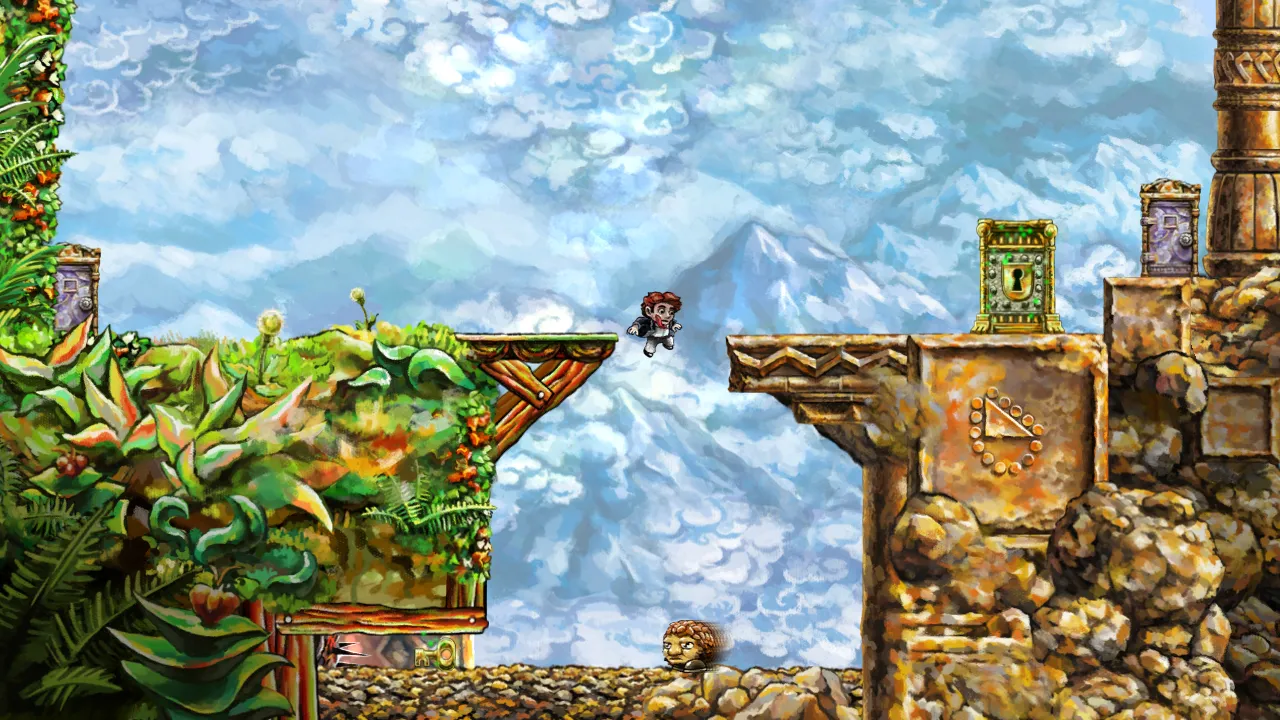
The story is another addition that I loved, it is presented as a generic plot but it builds from the beginning providing elements very typical of novelizations and films to touch something much deeper, a protagonist who feels human despite being on the other side of the screen and very good dialogues in which a certain philosophical message is understood in the middle of everything (something that Blow would take full advantage of in his next work, The Witness). Much of the art direction is also reminiscent of the pages of fairy tales and fables, the limitations are here more visible but make a good combination with the rest of the elements, the scenarios are well constructed with a special mention to the puzzles that are often the main headache of the game.
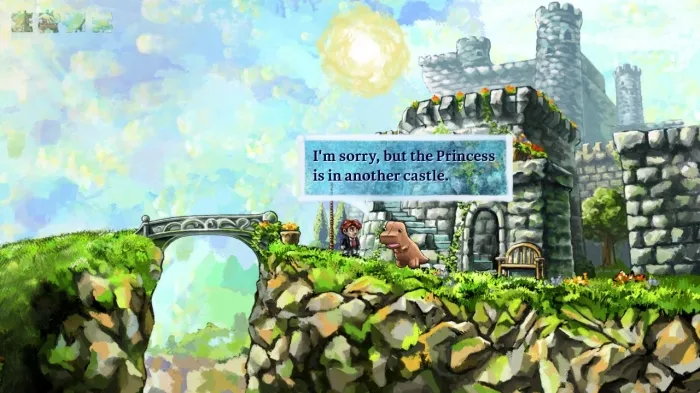
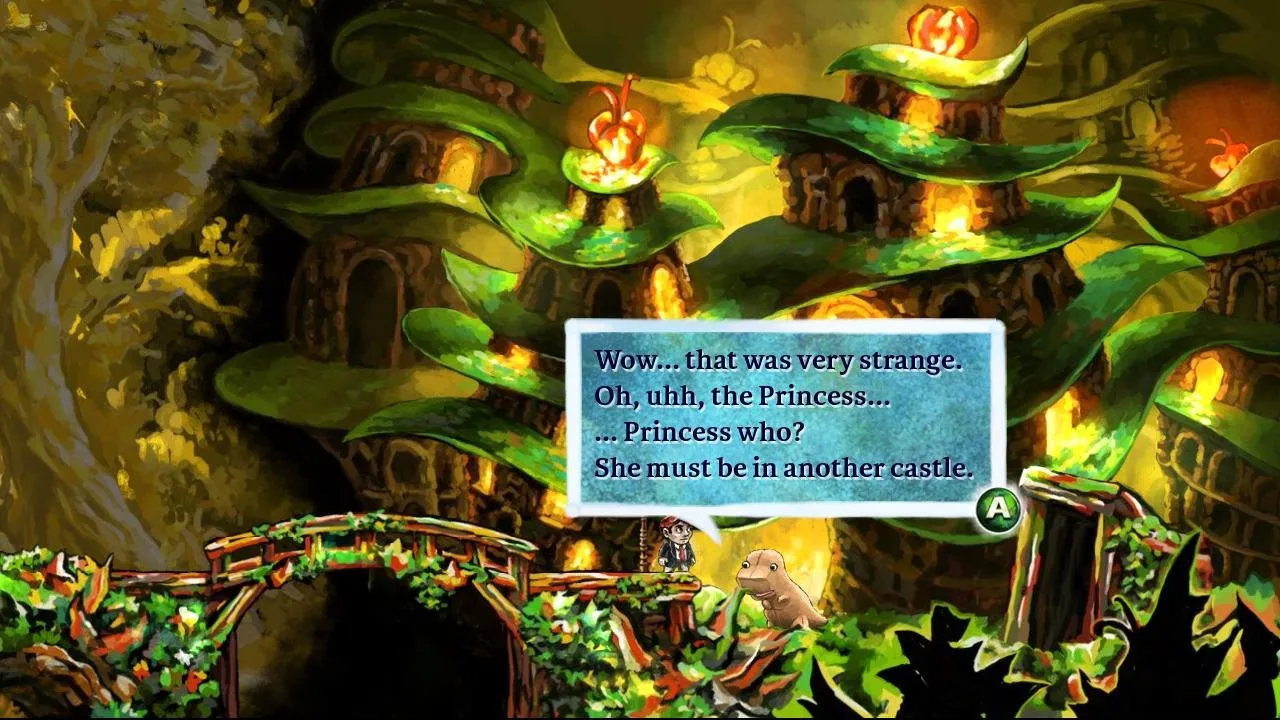
I'm still impressed by what developer Jonathan Blow has achieved, it's true that this game made its debut at several festivals and even won recognition and probably the blessing and sponsorship of Microsoft from the Indie video game festival of 2006 in which it was voted as the best work, but that does not take away from being a game that provided an extra boost to the bet of many large studios towards independent video games, who knows, maybe if Braid had not been developed we would have missed other titles that in my eyes have contributed much more than a playable experience to the industry, titles like Stanley Parable or Beginner's Guide are a standard of experimental games today and maybe they can thank a small developer that one day put the "Indie method" in the eyes of the market, thanks Braid.